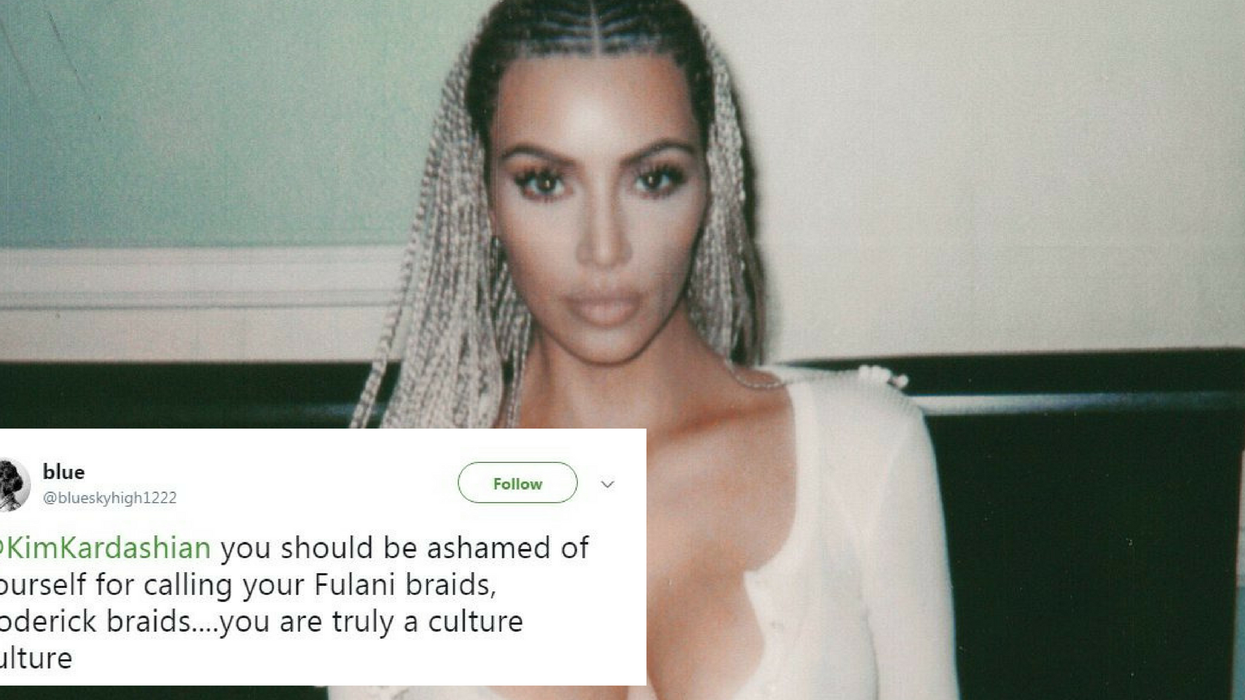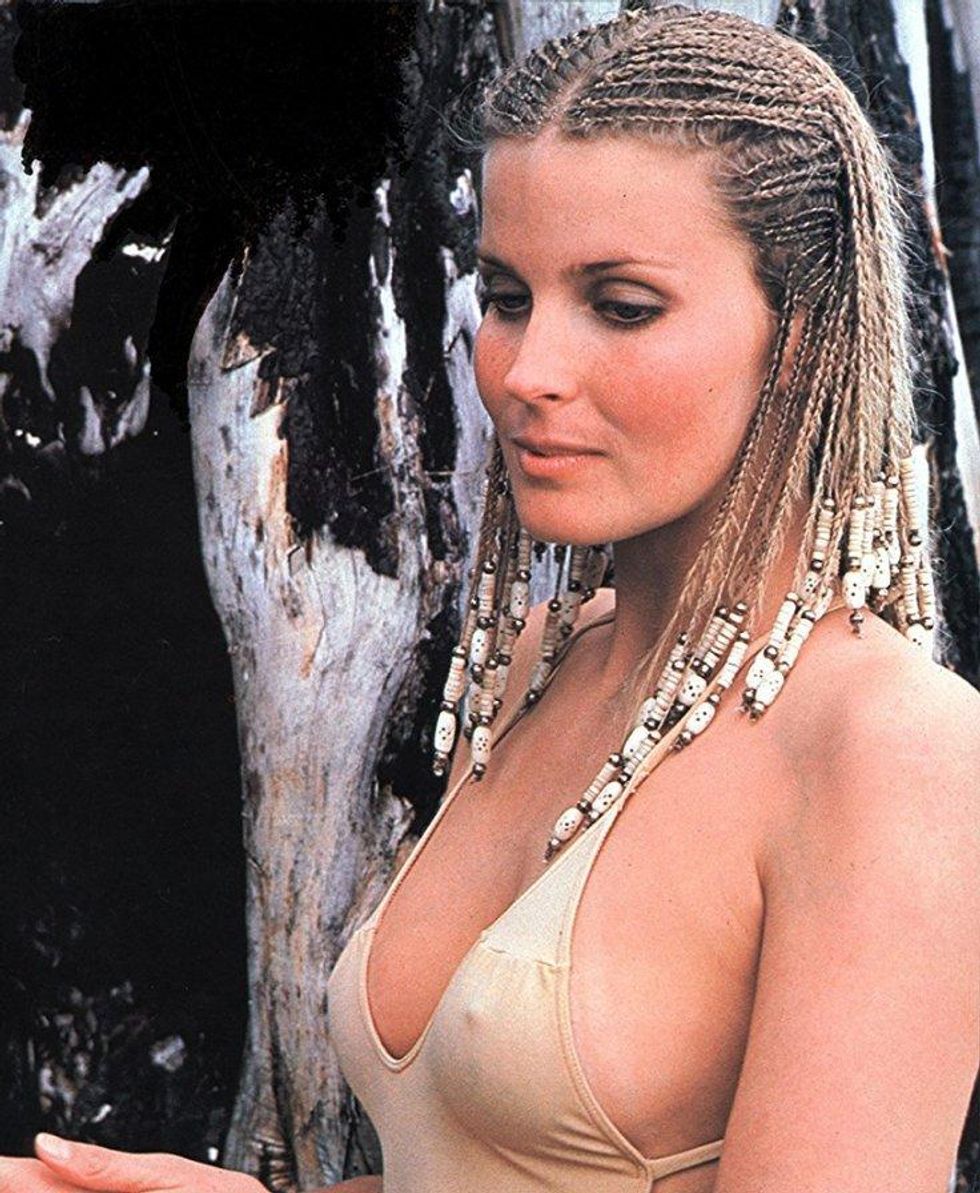Showbiz
Darin Graham
Jan 30, 2018

Picture:
Twitter/Kim Kardashian
Kim Kardashian shared a picture on Snapchat revealing her new silver cornrows referring to them as her “Bo Derek” braids, a reference to the actor's hairstyle in 1979 film, 10.
The comment was immediately slammed by many of her followers who accused her of being "disrespectful" and of cultural appropriation.
Later, she shared a picture of her new hair on Twitter.
Many people weren't happy.
Lindsay Lohan was one of the people calling Kim out.
Below a post of Kim's new braids on Perez Hilton's Instagram, Lindsay Lohan wrote:
I am confused.
In a surprising move, Kim clapped back saying:
...you know what's confusing...your sudden foreign accent.
Some users, however, came to the Kardashian's defence.

Kim followed up the criticism with another picture.
What is cultural appropriation?
Author of Who Owns Culture? Appropriation and Authenticity in American Law, Susan Scafidi, told Jezebel that it's tricky to give cultural appropriation a clear definition. But she boiled it down to:
Taking intellectual property, traditional knowledge, cultural expressions, or artifacts from someone else's culture without permission.
This can include unauthorized use of another culture's dance, dress, music, language, folklore, cuisine, traditional medicine, religious symbols, etc.
It's most likely to be harmful when the source community is a minority group that has been oppressed or exploited in other ways or when the object of appropriation is particularly sensitive, e.g. sacred objects.
Top 100
The Conversation (0)













